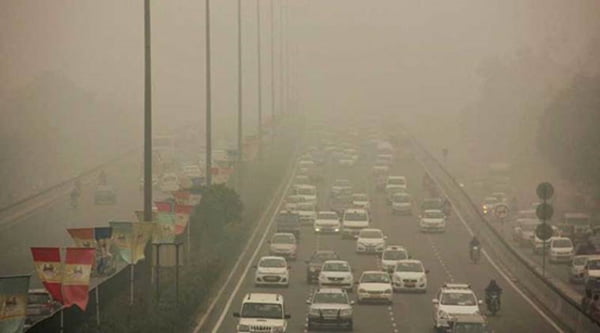Cutting CO2 sooner, ‘could save 153 million lives’
A new study says around 153 million premature deaths linked to air pollution could be avoided globally if governments curb fossil fuel emissions sooner, than their present targets. The research shows estimated lives saved per city if countries reduced CO2 emissions and limit temperature rise to 1.5 degrees sooner than later. Kolkata (4.4 million saved) and Delhi (4 million saved) top the list of beneficiaries from accelerated emissions cuts.
Delhi’s toxic air ‘not safe yet’
CSE’s air pollution report card on Delhi and its surrounding region shows first signs of improvement. “But it is not safe to breathe yet” it adds. The environment group says people must not lose momentum in the fight for clean air. Delhi NCR air is so polluted and toxic, that all efforts have reduced pollution from the severe-severe plus category to poor, very poor category, which is still hazardous.
Centre’s clean air plan ‘lacks transparency’
Centre’s National Clean Air Programme (NCAP) to tackle air pollution lacks transparency, Greenpeace has alleged. The climate group that accessed the NCAP’s concept document through an RTI said the draft plan has no clear interim milestones. Greenpeace study has revealed that over 80% cities in India where air quality is monitored are severely polluted and it impacts 47 million children. Also, 580 million people in India do not even have a single air quality monitoring station in the districts they are living.
Studies: Air pollution ‘causing lung cancer’ among non-smokers
Studies have revealed that lung cancer is on the rise in India, and it is linked with air pollution, both indoor and outdoor, and not smoking. “The number of non-smokers with lung cancer is going up by 30 to 40%…what is glaring is air pollution,” says Dr Shyam Aggarwal, chairperson of the Department of Medical Oncology at Sir Ganga Ram Hospital, Delhi. Data from the major cancer treatment centers across the country suggest a clear link, although there is no nationwide data yet to confirm this increased incidence.
Old commercial vehicles’ scrapping date: 2020
Centre’s mandatory policy to scrap commercial vehicles that are 20 years old, to curb air pollution, will come into effect by 2020. Govt plans to give tax concession on new commercial vehicles bought against a scrapped one. According to a study based on CPCB emission norms, there are 700,000 trucks, buses and taxis manufactured before December 31, 2000 that contribute to 15-20% of vehicular pollution.
About The Author
You may also like
Firecrackers caused pollution to spike three-fold this Diwali: Report
Bengaluru, Mumbai, Patna With the Highest PM2.5 Emissions From Diesel Generators: Study
Hyperlocal air quality monitoring identifies pollution hotspots in Indian cities: Study
Meat, dairy industry surpasses fossil fuels in methane emissions: Report
Delhi-NCR most polluted region in India, Karnataka the cleanest air in India: Report

